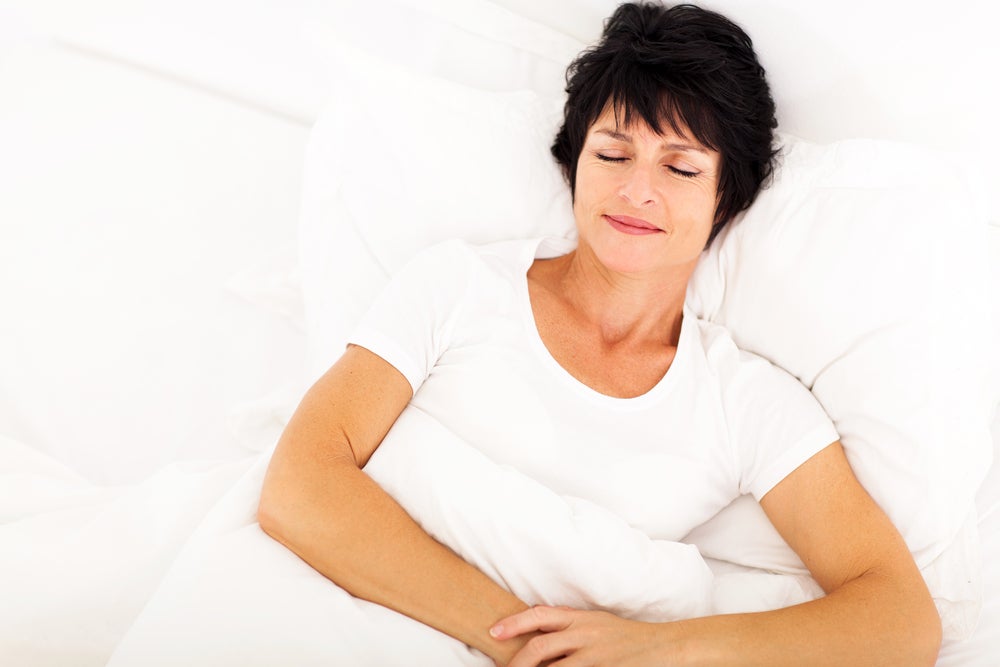3 Ways to Get Some Sleep After Hysterectomy
There are so many things that can keep you awake after a hysterectomy: the trauma of it all, uncomfortable incisions, medications, change in diet and schedule, and so much more. If you also had your ovaries removed, surgical menopausemay be part of the problem, too.
There are several annoying symptoms can keep you from your beauty rest. Hot flashes cause adrenaline surges that keep you from falling asleep, and night sweats can wake you up. Both of these can occur as part of menopause or general recovery from a major surgery. Stress and anxiety can keep your mind racing, while aches and pains keep your body on edge. Again, these can all be symptoms from a major surgery or as a result of menopause. The list goes on and on, but the end result is you’re not getting enough sleep.
1. Hormone Replacement Therapy (HRT)
Treating common symptoms of menopause can make it easier to get some rest. Options range from over-the-counter supplements, medications for each specific condition, or hormone replacement therapy (HRT).
As a bonus, if you use hormones to treat the symptoms, you could get extra sleeping benefits. Estrogen and progesterone do more than manage menopause. Yes, they can relieve the symptoms that are either keeping you awake or messing up your sleep-wake cycle, but both hormones also play key roles in your sleep cycle. Testosterone has a part, too.
Estrogen: Estrogen helps you get a good night’s sleep for many reasons. Besides playing a role in body temperature and the affects of cortisol – a stress hormone, it lets you fall asleep faster, it keeps you asleep all night, and it increases the amount of rapid eye movement (REM) sleep – the restorative type of sleep.
Progesterone: Progesterone plays a role in your sleep cycle, too. It’s also a calming hormone. Taken at bedtime, progesterone can help you fall asleep and may also help with sleep apnea. Note: Progestin, synthetic progesterone, may not provide these benefits.
Testosterone: If your testosterone levels are low, it can contribute to snoring and sleep apnea, something that also be caused by low estrogen. If you experience either, you aren’t getting a good’s night sleep – and neither is your partner!
2. Lifestyle changes
It’s easy to get lax about your diet and exercise during recovery or menopause. So many changes are going on in your life, you may not be taking as good care of yourself as you should. You may also be working different hours, dealing with extra stress, and skipping a regular bedtime routine. A hectic lifestyle will interfere with your sleep cycle, making it harder than ever to manage your regular activities. Take some time to assess your lifestyle and see if you can make some healthy changes. Start eating better, exercising regularly, managing stress, and following a regular schedule. You’ll be surprised at the difference those changes can make when it comes time to crawl into bed.
3. Sleep aids
Another option for getting some sleep is using various sleep aids. There are supplements, natural remedies, over-the-counter medications, and prescription options. There’s no magic cure, so it might take some trial and error to find one the works for you. As a precaution, only use one sleep aid at a time, don’t mix them with alcohol, and use caution the next day until you know if there are lingering side effects such as day time drowsiness. Additionally, long term you may develop a tolerance to some sleep aids and addiction is a risk with prescription options, so it’s very important to that you work with your doctor.
You don’t have to let menopause get the best of you. Start keeping a sleep diary and schedule an appointment with your doctor. Together, you can go over your notes and determine how you can start getting the sleep you need.
This content was written by staff of HysterSisters.com by non-medical professionals based on discussions, resources and input from other patients for the purpose of patient-to-patient support. Reprinted with permission: 3 Ways to Get Some Sleep After Hysterectomy







